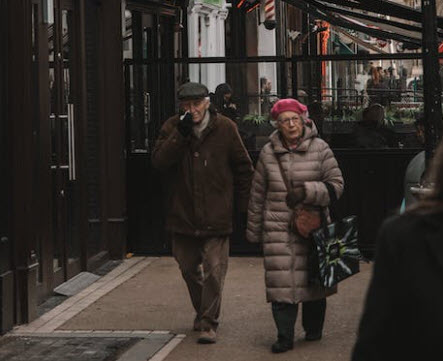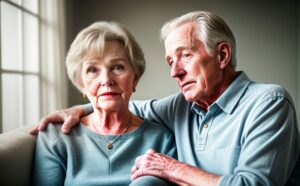When people consider ‘Aging IN Their Place of Choice,’ this is often in recognition of the comfort of living in a familiar place. We think of a lifestyle surrounded by family and established friends, resources, and services while being able to continue to connect and engage with our community interests. But for seniors who are new immigrants or refugees, aging ‘OUT of place’ can be a difficult and isolating experience. Without the same customary social and cultural supports that older North Americans can enjoy, these seniors often face loss of social standing, language barriers, racism, poverty, and poor health.
The journey to a new host country is unique for everyone. A person’s life prior to immigration and the reasons for the move will impact their experience of adjustment, adaptation, and, ultimately, integration into the new country. Those fleeing war and oppression (often with only the clothes on their backs) will have a much different transition from those who have chosen their new host country and move with joyous anticipation. Whether moving by necessity or choice, the prevalence of loneliness, marginalization, and discrimination is all too real.
While social isolation is difficult for any senior, it is especially problematic for immigrant and refugee seniors. This isolation affects their health, social, spiritual, and financial well-being.
Health
We know that positive social engagement contributes to better health outcomes and increased longevity. Conversely, isolation has a corresponding negative effect on one’s health. Isolation leads to increased depression, higher blood pressure, anxiety, and other mental health issues. Isolation can contribute to poorer lifestyle habits such as increased smoking and drinking and even obesity, all promoting a greater stroke or heart attack risk. Additionally, many confront unique cultural barriers when attempting to access health care. They can feel intimidated by unfamiliar medical systems and challenged with language difficulties. Many avoid seeking medical attention, and this delay in accessing health care at earlier stages of need leads to poorer results and increased healthcare costs.
Social
We cannot overestimate the power and importance of ‘social capital.’ Social capital refers to a community’s ability to draw upon the treasure trove of experience, knowledge, skills, and expertise of its citizens, especially the experience of older persons. Social capital contributes to the community’s long-term stability and quality of civic vision, planning, and development. Socially isolated seniors cannot participate and contribute to our social capital, denying their gifts to the community while preventing them from the purposeful and rewarding experience of being in service. Tragically, being isolated from others can also increase the risk of elder abuse and financial abuse.
Spiritual
Our spiritual beliefs and how we define ourselves relative to others and this world becomes increasingly important as we transition into later life stages. Our faith communities can provide validation of our beliefs and values within a safe and welcoming environment. Positive spiritual engagements can lead to better health, reduced depression, and enhanced well-being. New immigrants and refugees may have challenges accessing their own particular faith services or shared community while they strive to make sense of this life and prepare for their vision of the next.
Financial
Some immigrants and refugees find it difficult to work within their original profession, relegating them to more menial jobs and lower economic opportunities. Language can be a barrier, limiting the selection of jobs available and prospects for training and advancement. Those dependent on family sponsorship may face unique financial challenges.
Aging with Dignity
Creating a conducive environment for immigrants and refugees to age with dignity and respect is possible with strategic planning, collaborative leadership and effective social policies. Such plans should include initiatives to aid older immigrants and refugees in integrating more successfully into society by providing resources such as language courses, accessible healthcare, career opportunities, legal assistance, and housing. Ensuring new immigrants access culturally appropriate programs, activities, and social connectedness is critical to enabling them to age happily with dignity and respect. Ultimately, we must make a collective effort to create an inclusive environment where new immigrants, especially older immigrants, and refugees, can feel secure, respected and supported throughout their aging journey.
Rhonda Latreille, MBA, CPCA
Founder & CEO
Age-Friendly Business®
Brain and Social Isolation
Our need for and craving of social connection triggered the same brain response as those craving food. According to Dr. Nathan Spreng and associates from McGill University, those who were socially isolated had ‘craving’ brain activity in the same brain regions as those who were deprived of food.
Connection
“We all are so deeply interconnected; we have no option but to love all. Be kind and do good for any one and that will be reflected. The ripples of the kind heart are the highest blessings of the Universe.”
Amit Ray






